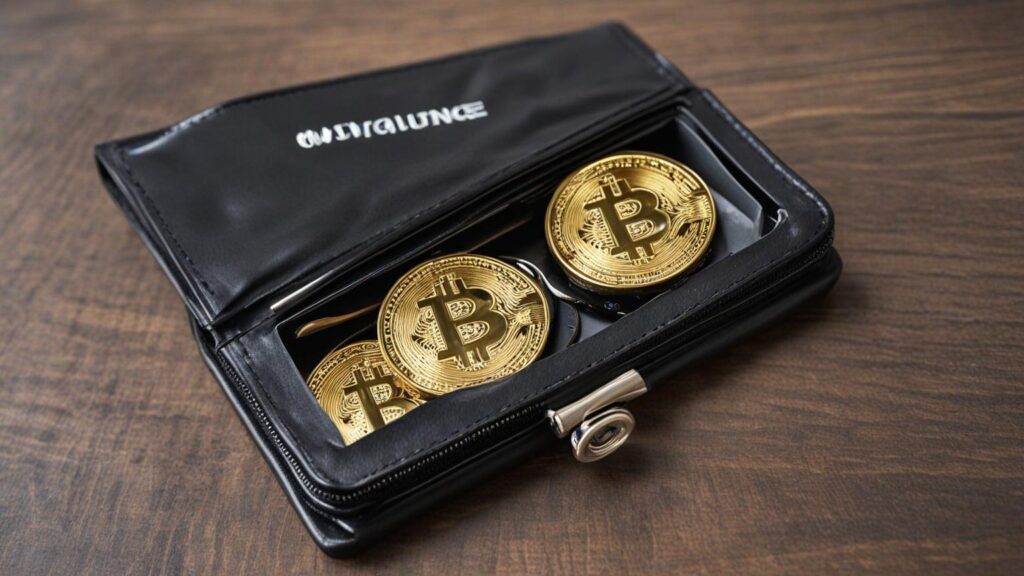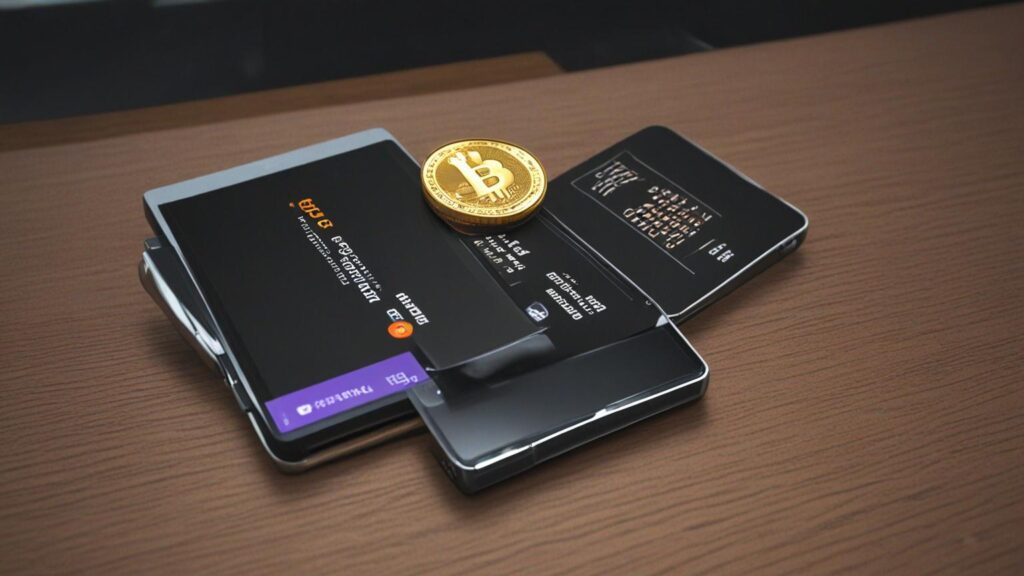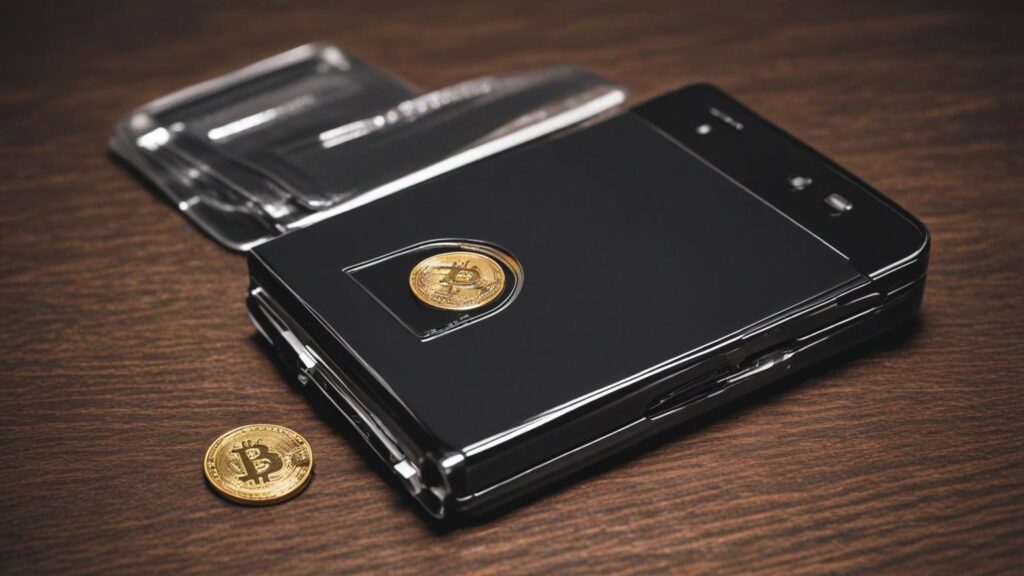Introduction:
Cryptocurrency is revolutionizing the way we think about money and investments. Yet, as with any valuable asset, it’s crucial to store it securely. This is where crypto wallets come into play. If you’re a cryptocurrency enthusiast looking to better understand how to safely store your digital assets, you’ve come to the right place. In this guide, we’ll break down everything you need to know about crypto wallets, from their types to their security features, setting them up, common mistakes to avoid, and future trends. By the end, you’ll be well-equipped to make informed decisions about your digital asset storage.

Understanding Cryptocurrency Wallets
A cryptocurrency wallet is a digital tool that allows you to store, manage, and transact with your cryptocurrencies. Unlike traditional wallets, which hold physical money, a crypto wallet holds the keys to your digital coins. These keys are what grant you ownership and permission to spend your cryptocurrencies.
There are two main types of keys in a crypto wallet: private and public. The public key acts like an address where others can send you cryptocurrency. The private key, on the other hand, is like a password that allows you to access and manage your funds. Without this key, you cannot access your crypto assets, making its security paramount.
Crypto wallets can exist in various forms including hardware, software, and paper. Each type has its own pros and cons, which we’ll explore in the following sections.
Types of Crypto Wallets Hardware, Software, and Paper
Understanding the different types of crypto wallets is the first step in choosing the best one for your needs. Below, we break down the three main types.
- Hardware Wallets
Hardware wallets are physical devices designed to store your private keys offline. These wallets are seen as highly secure because they are immune to online hacks. Popular options include brands like Ledger and Trezor. They often come with robust security features, including PIN protection and recovery phrases.
Using a hardware wallet involves connecting the device to your computer or smartphone whenever you need to make a transaction. This may sound cumbersome, but the extra steps provide an added layer of security.
- Software Wallets
Software wallets, also known as hot wallets, are applications you can install on your computer or mobile device. Examples include Exodus and Mycelium. They are convenient and often free, making them popular among beginners.
However, being connected to the internet makes them susceptible to hacking. It’s advisable to use strong passwords and enable two-factor authentication to enhance security.
- Paper Wallets
Paper wallets are physical pieces of paper with your private and public keys printed on them. They are considered one of the most secure methods as they are entirely offline. However, they require careful handling to avoid physical damage or loss.
To use a paper wallet, you need to import the keys into a software wallet when you want to make a transaction. This can be less convenient but offers peace of mind for long-term storage.
Security Features to Look for in a Crypto Wallet
One of the most critical aspects of choosing a crypto wallet is understanding its security features. Here are some of the features you should consider.
- Encryption
A good crypto wallet should offer strong encryption to protect your private keys. This ensures that even if your device is compromised, your keys remain safe.
- Two-Factor Authentication
Two-factor authentication (2FA) adds an extra layer of security by requiring two forms of verification before accessing your wallet. This could be something you know (a password) and something you have (a mobile device).
- Backup and Recovery Options
Losing your private keys means losing access to your cryptocurrency. Hence, having a reliable backup and recovery mechanism is essential. Look for wallets that offer recovery phrases or keys that can be used to regain access to your funds.
- How to Set Up and Use Your Crypto Wallet
Setting up a crypto wallet may seem daunting, but it’s simpler than you think. Follow these steps to get started.
- Choose Your Wallet Type
First, decide whether you want a hardware, software, or paper wallet based on your needs and preferences. Each type has its setup process, which we’ll briefly outline here.
- Download or Purchase the Wallet
For software wallets, download the official application from a reputable source. For hardware wallets, purchase directly from the manufacturer to avoid counterfeit products.
- Follow Setup Instructions
Each wallet type comes with specific setup instructions. For software wallets, this usually involves creating an account and setting up a password. For hardware wallets, you’ll need to follow the device’s manual to initialize it and generate your private keys.
- Secure Your Private Keys
Once set up, ensure that you store your private keys or recovery phrases in a secure location. Avoid storing them digitally to prevent hacking risks.

Common Mistakes in Cryptocurrency Storage and How to Avoid Them
Even seasoned cryptocurrency enthusiasts can make mistakes when it comes to storage. Here are some common pitfalls and how to avoid them.
- Ignoring Backup Options
Failing to back up your wallet can lead to permanent loss of your funds. Always make use of the backup options provided by your wallet.
- Falling for Phishing Scams
Phishing scams are rampant in the crypto world. Always verify the authenticity of any communication related to your wallet and never share your private keys.
- Using Easily Guessable Passwords
Weak passwords are an open invitation for hackers. Use complex, unique passwords for your wallets and consider using a password manager for added security.
The Future of Crypto Wallets Innovations and Trends
The world of cryptocurrency is rapidly evolving, and so are crypto wallets. Here are some trends to watch out for.
- Integration with Financial Services
Future crypto wallets may integrate more seamlessly with traditional financial services, allowing for a smoother experience when converting to and from fiat currencies.
- Enhanced User Experience
Developers are continually working to make crypto wallets more user-friendly. Expect more intuitive interfaces and simplified processes, making it easier for anyone to use.
- Advanced Security Measures
Security will always be a priority. Upcoming innovations may include biometric authentication and multi-signature capabilities, further enhancing wallet security.

Conclusion
Cryptocurrency offers exciting opportunities, but securing your digital assets is crucial. By understanding the different types of wallets and their security features, you can make an informed decision on the best storage method for your needs. Avoid common mistakes and stay updated on future trends to keep your investments safe.
If you’re ready to take the next step in securing your digital assets, start by exploring our recommended crypto wallets. Ensuring the safety of your cryptocurrency has never been easier, so why wait?
Frequently Asked Questions (FAQs)
What is the most secure type of crypto wallet?
Hardware wallets are generally considered the most secure as they store your private keys offline, minimizing the risk of online attacks.
Can I lose my cryptocurrency if I lose my wallet?
Yes, if you lose access to your private keys without having a backup, you can lose your cryptocurrency. Always use the backup options provided by your wallet.
Are free crypto wallets safe to use?
While many free software wallets offer robust security features, they are generally more vulnerable to online threats compared to hardware wallets. Ensure you enable all available security settings.
How often should I update my crypto wallet?
Regular updates are essential for maintaining security. Always update your wallet software whenever new versions are released.
By following these guidelines and staying informed, you can keep your digital assets secure and enjoy the benefits of cryptocurrency with peace of mind.
